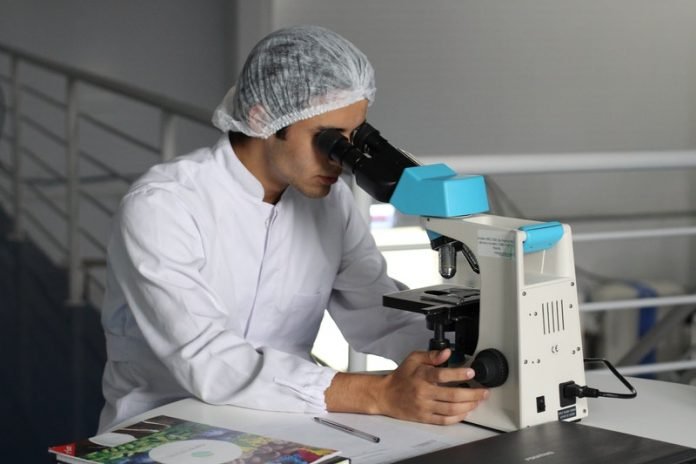
In a new study, researchers have identified 30 existing drugs that stop the replication of SARS-CoV-2, the virus that causes COVID-19.
Almost all of the drugs are entirely different from those currently being tested in clinical trials and weren’t previously known to hold promise for COVID-19 treatment.
The new candidates expand the number of “shots on goal” for potential COVID-19 treatment and could reach patients faster than drugs that are created from scratch.
The research was conducted by scientists at Sanford and elsewhere.
The team says this is one of the first comprehensive drug screens using the live SARS-CoV-2 virus, and our hope is that one or more of these drugs will save lives while we wait for a vaccine for COVID-19.
Many drugs identified in this study—most of which are new to the COVID-19 research community—can begin clinical trials immediately or in a few months after additional testing.
The drugs were identified by screening more than 12,000 drugs from the ReFRAME drug repurposing collection—a library of existing drugs that have been approved by the FDA for other diseases or have been tested extensively for human safety.
ReFRAME was created by Scripps Research with support from the Bill & Melinda Gates Foundation to accelerate efforts to fight deadly diseases.
Every compound was tested against the live SARS-CoV-2 virus, isolated from patients in Washington State and China, and the final 30 drugs were selected based on their ability to stop the virus’s growth.
In the study, 27 drugs that are not currently under evaluation for COVID-19 were effective at halting viral replication.
17 of these drugs have an extensive record of human safety from clinical studies in non-COVID-19 diseases, including four—clofazimine, acitretin, tretinoin, and astemizole—that were previously approved by the FDA for other indications.
Thus far, six of the 17 were shown to be effective at concentrations, or doses, likely to be effective and tolerable in humans.
Four of these six drugs—apilimod, MLN-3897, VBY-825 and ONO 5334—have been tested clinically for diseases including rheumatoid arthritis, Crohn’s disease, osteoporosis and cancer.
In addition to the 27 drug candidates, three drugs currently in clinical trials for COVID-19, including remdesivir and chloroquine derivatives, were also shown to be effective at stopping the growth of SARS-CoV-2.
These results reaffirm their promise as potential COVID-19 treatments and support the continuation of ongoing clinical trials to prove their effectiveness in patients.
Depending on regulatory guidance, the newly identified drug candidates may proceed directly to COVID-19 clinical trials or undergo further testing for efficacy in animal models.
One author of the study is Sumit Chanda, Ph.D., director of the Immunity and Pathogenesis Program at Sanford Burnham Prebys.
The study was placed on bioRxiv (pronounced “bio-Archive”), an open-access distribution service for preprints of life science research.
Copyright © 2020 Knowridge Science Report. All rights reserved.



